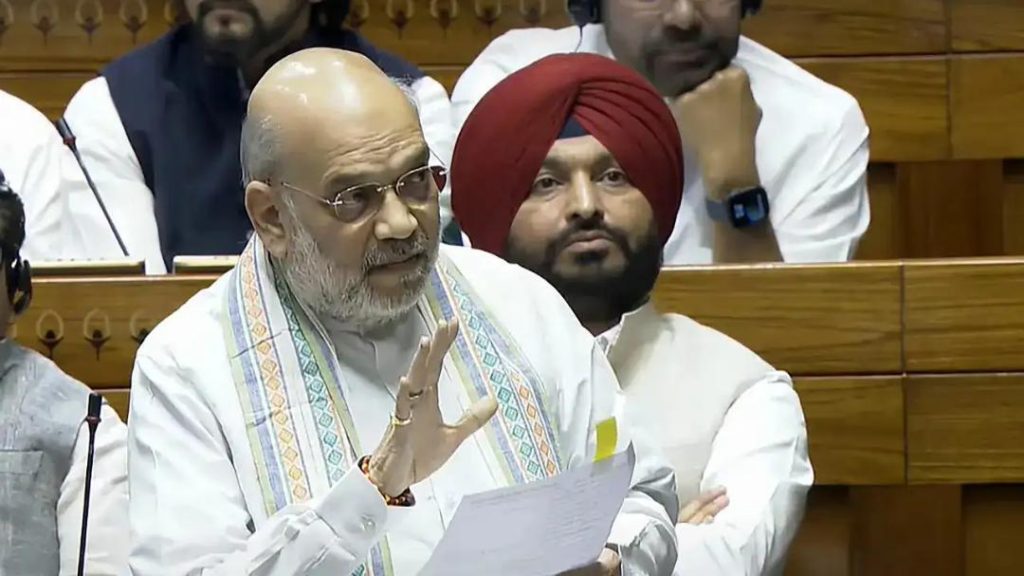
Title: You Donate Something Which is Yours, Can’t Donate Someone Else’s Property: Shah on Waqf Bill
In a recent statement, Union Home Minister Amit Shah clarified the purpose and scope of the Waqf Amendment Bill, which aims to protect properties and ensure transparency in the management of religious institutions. Speaking on the bill, Shah emphasized that a person can only donate something that belongs to them and not someone else’s property.
The Waqf Amendment Bill was introduced in the Parliament with the intention of revamping the existing Waqf Act of 1995. The bill seeks to empower the Central Waqf Council to take over the management of Waqf properties, which are religious endowments or charitable trusts. The move is aimed at ensuring that these properties are utilized for the benefit of the community and not misused by individuals or groups.
Shah’s statement on the bill highlighted the importance of protecting the properties of religious institutions. He explained that the bill is meant to safeguard the interests of the community and ensure that the properties are used for their benefit. The Home Minister emphasized that the bill is not aimed at taking away the properties of religious institutions but rather to ensure that they are managed in a transparent and accountable manner.
The Waqf Amendment Bill has been the subject of much controversy and debate, with many critics arguing that it is an attempt by the government to grab the properties of religious institutions. However, Shah’s statement has helped to clarify the purpose and scope of the bill, which is to protect the properties and ensure transparency in their management.
The bill has also been criticized for its potential to empower the Central Waqf Council to take over the management of Waqf properties, which some argue is an infringement on the autonomy of religious institutions. However, Shah’s statement suggests that the bill is not intended to take away the powers of religious institutions but rather to ensure that they are managed in a transparent and accountable manner.
In his statement, Shah emphasized the importance of protecting the properties of religious institutions and ensuring that they are used for the benefit of the community. He explained that the bill is meant to safeguard the interests of the community and ensure that the properties are utilized in a manner that is beneficial to them.
The Waqf Amendment Bill has been the subject of much controversy and debate, with many critics arguing that it is an attempt by the government to grab the properties of religious institutions. However, Shah’s statement has helped to clarify the purpose and scope of the bill, which is to protect the properties and ensure transparency in their management.
The bill has also been criticized for its potential to empower the Central Waqf Council to take over the management of Waqf properties, which some argue is an infringement on the autonomy of religious institutions. However, Shah’s statement suggests that the bill is not intended to take away the powers of religious institutions but rather to ensure that they are managed in a transparent and accountable manner.
In conclusion, Shah’s statement on the Waqf Amendment Bill has helped to clarify the purpose and scope of the bill, which is to protect the properties and ensure transparency in their management. The bill aims to safeguard the interests of the community and ensure that the properties are utilized in a manner that is beneficial to them. While the bill has been the subject of much controversy and debate, Shah’s statement has helped to provide clarity on the government’s intentions and the potential benefits of the bill.






